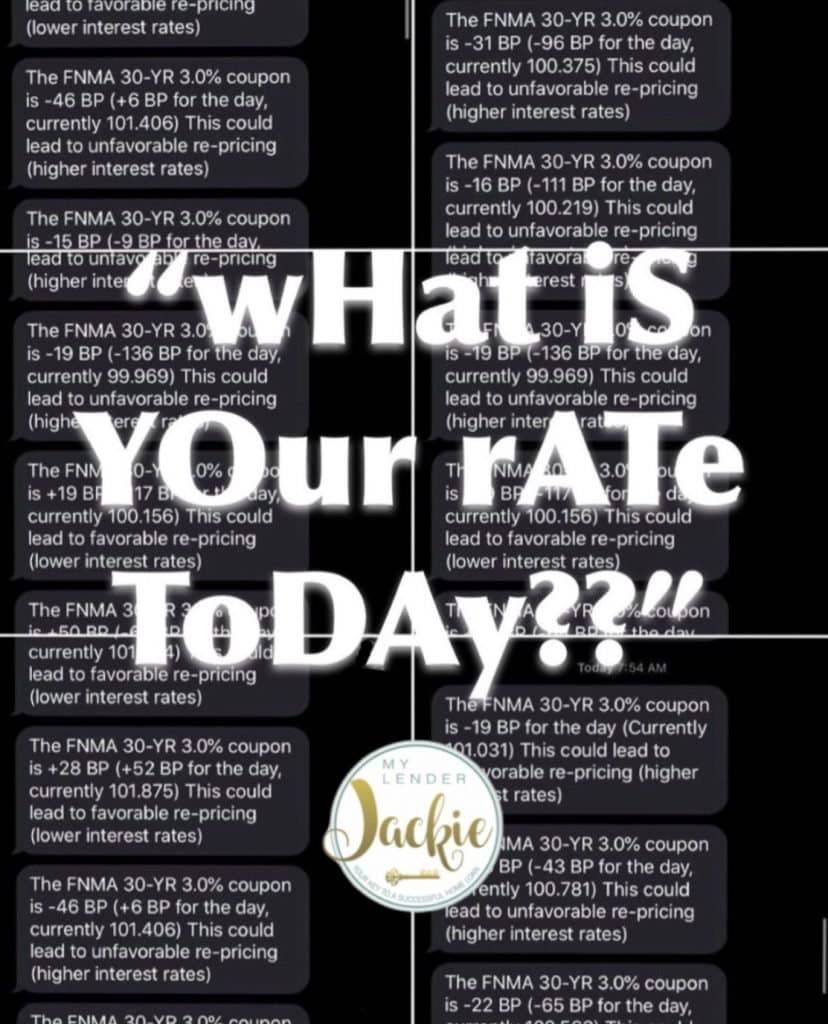
When Will This Chaotic Mortgage Market Settle Down?
General Economic Disruptions Have Been Caused By the Current Global Pandemic
One of the biggest headlines next to people becoming ill, was the sudden huge drops in the stock market during February and March. The plummet was met with massive bond market gains. When there are gains in the bond market, it commonly causes mortgage rates to lower. This is because mortgages are part of the bond market. So positive gains in bonds = better interest rates in mortgages.
During the stock market plummet, the bond market saw such large gains that it was too much of a good thing where mortgages were concerned. If you are hoping to secure a home loan, you are hoping to get the lowest interest rate possible because this means less money paid out over the life of the loan and lower monthly mortgage payments.
So how could super low mortgage rates be a bad thing?
The reason mortgage rates going too low is a bad thing has to do with the investors who purchase them. You see, investors buy mortgages from the companies who originate, approve, and close them. When investors purchase these mortgages they do so with the intent to make money off of the interest that is paid on them. When a loan is paid off earlier than expected because rates are rapidly dropping and people are refinancing, the investor makes much less money than they expected to. When the expected number of refinances is high, investors are reluctant to pay the traditional/expected/normal amount for a mortgage because of the higher risk and likelihood to make less money. The reluctant response of investors to purchase loans causes interest rates to rise or even to flatten and stay where they are.
In addition to a spike in refinance requests the economy also saw the entire financial market frantically trying to sell everything possible in hopes to acquire cash. What this means is that assets where repositioned to cash form in response to the crisis. Assets like stocks and bonds carry some risk because they cannot be used as day-to-day capital the way cash can.
So with several people looking to turn stocks, bonds, etc. into actual cold hard cash (referred to as a cash grab) and skyrocketing refinance requests, mortgage investors had very big and good reasons to sell of their mortgages. When a significant number of mortgage investors begin to sell off the mortgages they invested in, interest rates begin to rise. This large sell off by investors caused the mortgage rates to rise at the fastest rate ever in history just weeks ago.
The Federal Stimulus Package is Detrimental to the Mortgage Market
It’s not really the bill itself that created negative impact on the mortgage market, but an underlying issue the bill doesn’t take care of. We are seeing the highest unemployment rates we have seen in a long time. As the unemployed are unable to make ends meet they look to lower their cost of living. Some will do this by applying for a refinance or selling their homes. Some will end up in worst case scenarios and default on their loan. In the event of default mortgage investors are almost always protected from loss of interest and principal. Defaults still create negative impact to the market in the same way large numbers of refinances do.
How does the stimulus package or Disaster Relief Bill play into this?
It encourages the large number of Americans whose income is largely impacted by the pandemic to seek forbearance on their mortgage. A forbearance allows the mortgage borrower to delay making any payments for a minimum of 6 months. This is a good thing for homeowners that need the help, but there are some unintended consequences from forbearance.
The investors that purchase mortgages have a guarantee when they purchase that they will receive their money from payments on time. When a homeowner is not making these payments on time those payments become the responsibility of the loan servicer. If the loan servicer is unable to pay it falls on housing agencies like Fannie Mae. If these agencies fail to pay it becomes a burden on taxpayers when the Treasury provides a “draw” to housing agencies. The new bill was originally written with Fed and Treasury credit to mortgage servicers for COVID-19 related delinquencies, but as it got passed around the clause didn’t end up in the final bill.
With so much risk for lenders to assume during this pandemic (forbearance, refinance, homes selling early, no concrete credits, etc.) those that are looking for loans without being able to provide solid equity, have low credit scores, and/or non-standard income documentation may have trouble getting approval. Investors are not interested in taking high risks on owning these loans. They are waiting to get a better picture of when this pandemic will end or if servicers will be able to provide timely payments when borrowers can’t because the government will help to back them up.
When Can We Expect Things to Get Better for the Mortgage Market?
Despite positive growth in bonds that secure top tier mortgage debt, a large amount of the mortgage market remains at high risk and uncertainty because of events caused due to the pandemic. Some areas will bounce back faster as bondholders learn about their forbearance protection. Other areas of the market will be slow to come back to health as the possibility of recession grows. There is no solid answer or date when things will get back to a strong place, only time and stability will help to bring rates and product offerings back around.
If you would like more information about your current loan situation or applying for a new mortgage during COVID-19 or refinancing during this time please contact me at any time. I am here to make things easily understandable and help you make the right financial decisions for you. When Will This Chaotic Mortgage Market Settle Down?
Have a Question? Ask Me Now
More:
Are We at the Top of the Real Estate Market?
Will My Credit Score Affect My Chances of Getting a Home Loan?


